https://www.straitstimes.com/life/gifted-education-programme-saved-my-life-says-ceo-who-felt-like-a-weirdo-in-school
Gifted Education Programme ‘saved my life’, says CEO who felt like a ‘weirdo’ in school

SINGAPORE – Ms Crystal Lim-Lange could read at 14 months old.
She and her two younger brothers were avid learners, devouring the four encyclopaedias at home as well as her father’s library of books, which ranged in topics from philosophy to survivalism. Her favourite authors of fiction were Roald Dahl, Gerald Durrell, J.R.R. Tolkien and C.S. Lewis.
“One of my favourite books was an ultimate survival manual for any disaster and I used to practise operations like an emergency tracheotomy on my very unwilling younger brother,” says Ms Lim-Lange, 45. She is now chief executive of Forest Wolf, a leadership consultancy that specialises in leadership transformation and personal growth.
She is co-author of the best-selling book, Deep Human, which delves into five “superskills” people need for future success.
School, though, was another matter.
“I was an outcast without a single friend,” she recalls, adding that she had no birthday parties from ages two to nine because there was no one to invite.
She recalls the good girls steered clear of her, as she did not want to collect stickers or play zero point at the playground.
She preferred taking things apart, digging for treasure in the school grounds, reading obscure books and speaking in a way that other kids deemed pretentious, “but was actually just how I thought”, she says.
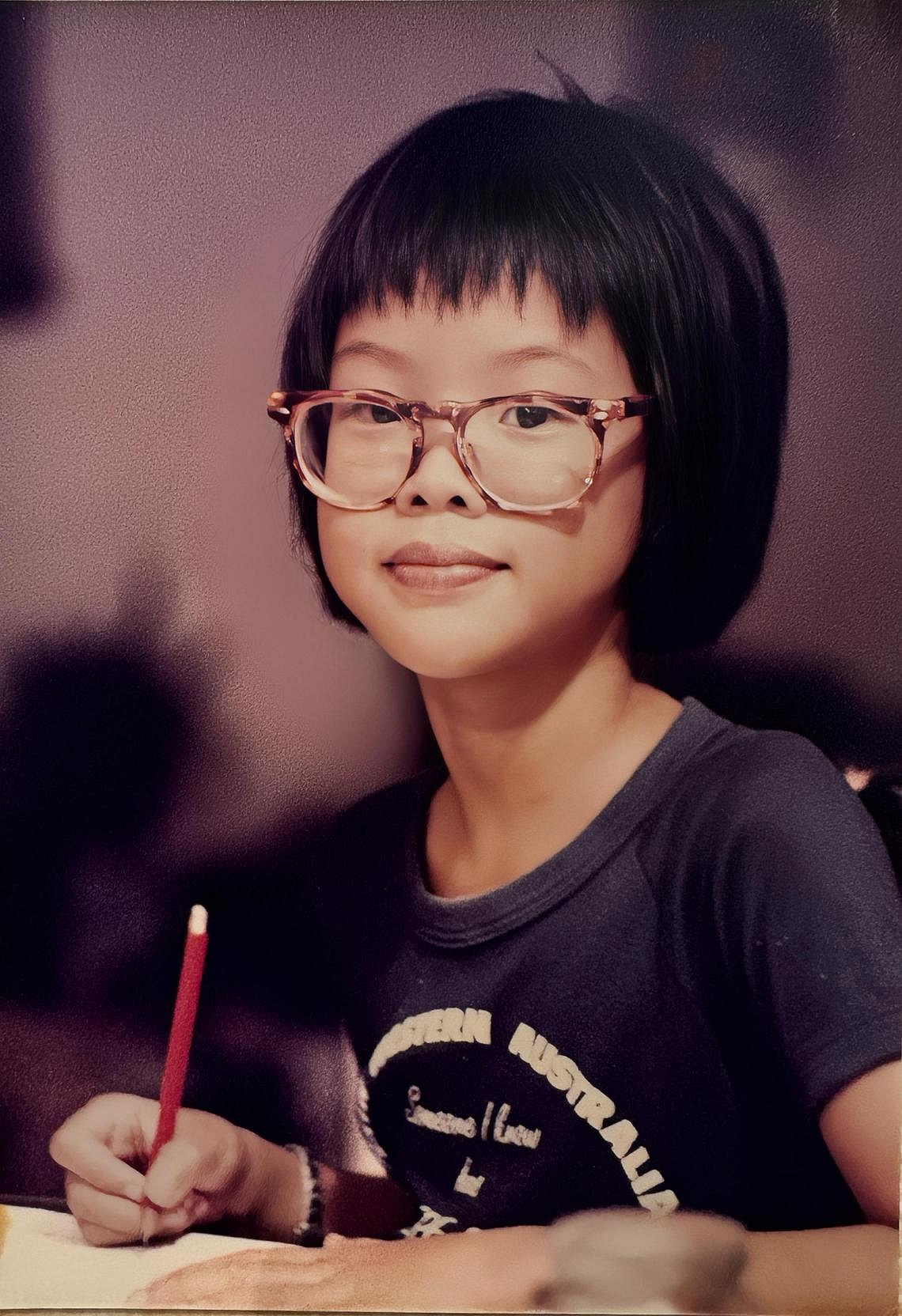
In classroom settings, she was both disruptive and destructive, she tells The Straits Times.
She could not sit still, she would walk around disturbing the other students or argue with her teachers “to the point that they would spend half the class scolding me and depriving the other kids of lesson time”.
Bored during group piano enrichment lessons because she could instantly recreate any music she heard, she dug holes into the dry partition walls of the classroom to amuse herself.
In ballet class, she was the one galloping and neighing like a horse, while the other girls did pirouettes during free expression time.
Her exasperated mother, Mrs Florence Lim, 67, who runs a tuition centre, would cane her before classes, thinking it would subdue her feisty daughter, but it had the opposite effect – she felt she had already earned the stripes to act out.
She excelled in English, but her grades for the other subjects were “very mixed”, says Ms Lim-Lange.
“My school reports always commented on my failure to focus and daydreaming in class. Later on in life, when I became an educator, I learnt that research demonstrates that good grades are more correlated to obedience and discipline than they are with success in life,” adds Ms Lim-Lange, who has taught more than 100,000 people globally about emotional intelligence skills and spearheaded large-scale transformational training programmes for clients.
Her life changed when she was accepted into the Gifted Education Programme (GEP) in Primary 3. She transferred from CHIJ St Nicholas Girls’ School to Raffles Girls’ Primary School in 1989 and later went to Raffles Girls’ School for her secondary education.
The GEP “saved my life”, she wrote in an Aug 20 LinkedIn post. The programme “probably prevented a bunch of gifted kids like me from depression and imbued us with a sense of meaning, community and self-worth”.
Her post came two days after Prime Minister Lawrence Wong announced in the National Day Rally that the GEP would be revamped after 40 years and broadened to include more high-ability students, starting with the 2024 Primary 1 cohort.
The programme previously took in the top 1 per cent of students – about 400 to 500 students – who were selected via a two-stage exercise in Primary 3.
The secondary level GEP was phased out in 2008 when the six-year Integrated Programme became popular.
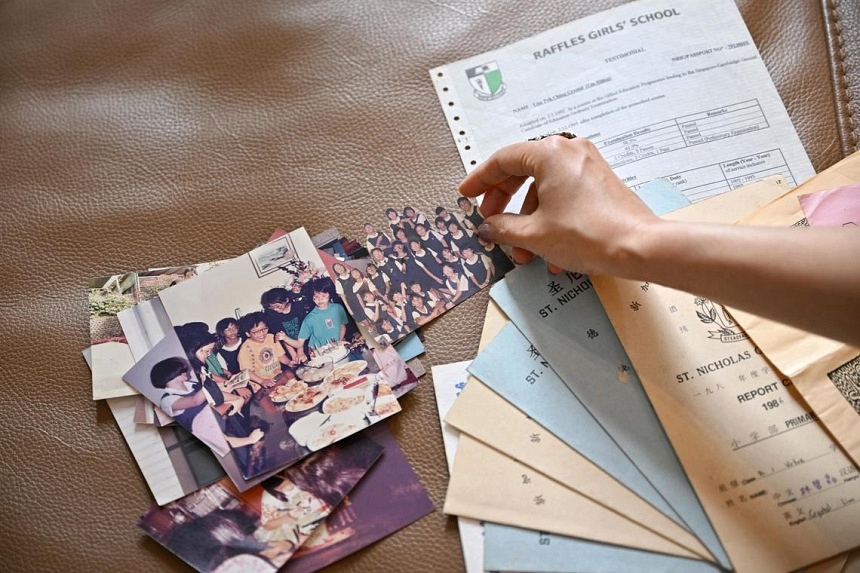
She added in her post: “When I walked into my new class for the first time and found fellow weirdos, it was like stepping into a secret universe called home, and for that I am grateful.”
Her post went viral, chalking up over 112,000 views for the first post and more than 2,000 “likes” for that and two more related posts within 24 hours, she says. She has over 122,000 followers on TikTok, 88,000 on Instagram and over 40,500 on LinkedIn.
She says that “being gifted often feels like you are never entitled to talk about your own perspectives because it sounds like you’re boasting or elitist”.
However, the outpouring of heartfelt messages surprised her.
“So many parents and gifted kids have reached out to me to thank me for speaking out about neurodivergence and how giftedness should not be something that you send kids to tuition for,” she tells ST. She shared some of the feedback she received on Instagram Stories.
“I am also very touched by the many comments from non-gifted kids who said that they always thought gifted kids were elitist snobs, but that I gave them a new perspective and understanding of what the reality was like.”
Growing up gifted and always in trouble
Ms Lim-Lange lived in a two-room rental Housing Board flat when she was a baby, as her parents eloped from Malaysia to Singapore and had her in their 20s. They struggled to put food on the table for a while, she says.
Her mother now runs a tuition agency and her father, Dr Lim Eng Siong, 72, is a retired anaesthetist. He was known as the “dancing doctor of Zouk”, who dressed in black and white and showed off his moves on the podium at the nightclub, she says.
Both her younger brothers were also in the GEP – Darryll, 43, works in their mother’s tuition centre and Maxwell, 35, works in a bank.
Her son Finn Leahy, 17, and daughter Dylan Leahy, 15, from her first marriage, study in international schools.
Finn was assessed by a clinical psychologist in Australia at six years old and found to have gifted levels of verbal comprehension and perceptual reasoning.
“Giftedness is in itself a form of neurodivergence, but my whole family probably had what is now termed as 2e (twice exceptional), where the giftedness is also combined with other challenges (which refer to a broad range of emotional, behavioural or mental health challenges),” she says, without going into further details.
She is now married to Dr Gregor Lim-Lange, 48, a German clinical psychologist who runs Forest Wolf with her.
But while she found a community of like-minded souls in the GEP, she still buckled against academic expectations.
“I didn’t submit my homework on time and regularly failed exams, so from Sec 2 to Sec 3, I was required to go to the Ministry of Education’s office on a weekly basis for counselling and made to sign several behavioural contracts promising I would buck up and toe the line,” she says.
Her teachers spent so much time managing her that, to salvage lesson time, her GEP classmates in secondary school formed a “makeshift care system”.
“They set up an informal roster – one person would supply me with their notes, another two would be frantically doing my homework before the start of class, another one would brief me on what was expected of me today. And when the teachers started getting agitated with me, they would play mediator and distract the teacher with questions before the situation escalated,” she recalls.
She had an L1R5 score of 11 for her O levels and entered Raffles Junior College, but the transition “felt like losing my family in one fell swoop”.
“I had been with the same cohort of 80 kids for seven years. Yes, we didn’t always get along, but we knew one another so well, there was this level of acceptance and intimacy that is rare to find in today’s world,” she says.
She developed “masking skills” to cope.
“I learnt how to simplify the way I spoke so as not to get teased for being ‘atas’ (Singlish for ‘high class’) or having an antiquated vocabulary. I also learnt about the currency of power and popularity that neurotypical classmates operated on. In the GEP, I don’t think we focused on looks or popularity or conforming to social norms as much.”
Her parents did not want to send her to an overseas university as the Asian financial crisis was causing economic instability, so she wrote to Durham University in England to pitch for a law scholarship as she noticed it had relatively low enrolment from Singaporean and Asian students.
In return, she would promote the university as an “informal influencer among the Asian community”.
She got the scholarship.
She began her career as an investment banking analyst at Swiss investment bank UBS in 2000. Her previous roles before she started Forest Wolf in 2018 included being the founding director of the NUS Centre for Future-ready Graduates, which offered future-ready skills and leadership training to students and alumni, while working with employers to recruit talent.
Now, as a mother of two and with the benefit of hindsight, she feels revamping the GEP to give a high quality of education to more children is laudable. But she feels that the loss of a centralised “safe space” will make some children feel like “the lone weirdo in their school and always feeling like there is something wrong with them”.
She adds that “a truly inclusive approach would have kept the original GEP in place for the ‘special needs’ kids, while also making the educational technology available to more kids at the same time”.
However, she admits that not being able to mix with the general school population then was a disadvantage.
“I saw my brothers really struggle to adapt outside the programme, so there could have been perhaps some classes or projects where we were part of the broader school community,” she adds.
Other Gifted Education Programme alumni on their experience
Who: Dr Jean Liu, 39, is an adjunct assistant professor at Yale-NUS College and director at the Centre for Evidence and Implementation, a social purpose non-profit. She studied at Nanyang Primary School and entered the GEP there, continuing in the programme at Dunman High in secondary school.
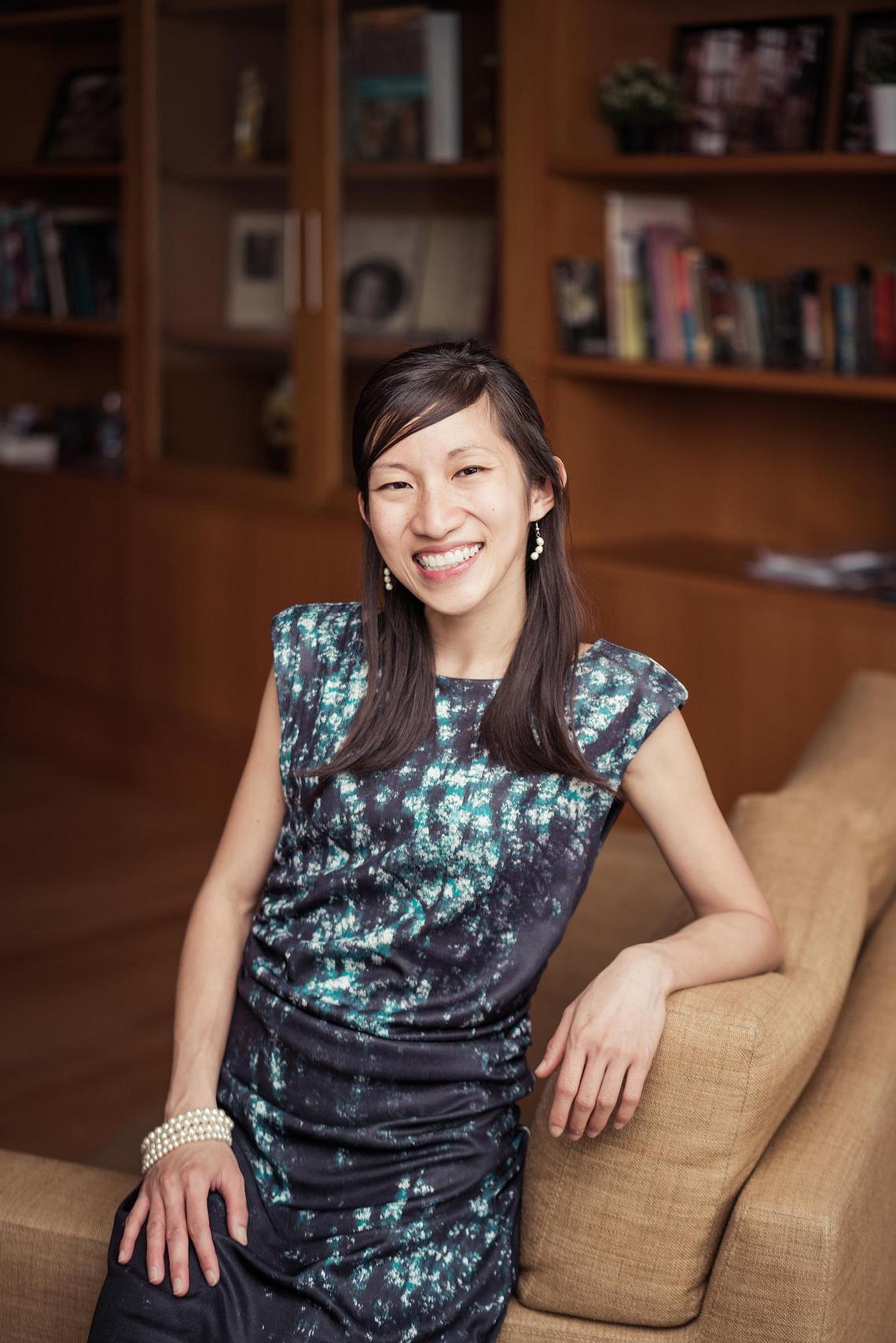
“Often, our default response to children’s questions is ‘cannot’ or ‘like that, lo’.
By contrast, my teachers always said ‘why not’. They encouraged me to probe assumptions and to pursue out-of-the-box ways of thinking.
Even in primary school, my maths syllabus looked at different number systems over time and space. Instead of just applying formulas, we asked whether a base 10 was needed and what archaeologists had learnt about different numerical systems. Knowledge was not learnt in a vacuum, but was instead contextualised within other fields and involved hands-on activities.
We were also given space to develop our interests. For instance, I found graphology (handwriting analysis) interesting as a Primary 5 student and ended up carrying out a project to understand its reliability and applicability.
My research career has been greatly influenced by these early experiences and I have spent my adult life trying to extend similar opportunities to as many children and teens as I can.
Socially, I also made lifelong friends because we didn’t change classes regularly. I still meet some of my primary school classmates almost every week.
As a psychology researcher and educator, I agree that our education system needs to make space for individual differences and not quickly treat differences as delinquency. We need to do better at accommodating neurodiversity, different learning styles, and individual personalities.
The GEP offered one form of accommodation, but it is not the only form.
It is also important to consider how GEP impacts other aspects of society. While accommodation is important, we also need to make sure we don’t promote inequality through our public education systems, we don’t skew incentives (to drive a tuition system for entrance exams), and we continue encouraging life-long and curiosity-driven learning. It’s not trivial to address all of these at the same time.”
Who: Ms Beatrice Liu, 40, is chief executive of Oriental Remedies Group, a chain of five traditional Chinese medicine clinics. She entered the GEP at Secondary 1 in Raffles Girls’ School. She has two sons aged two and five.
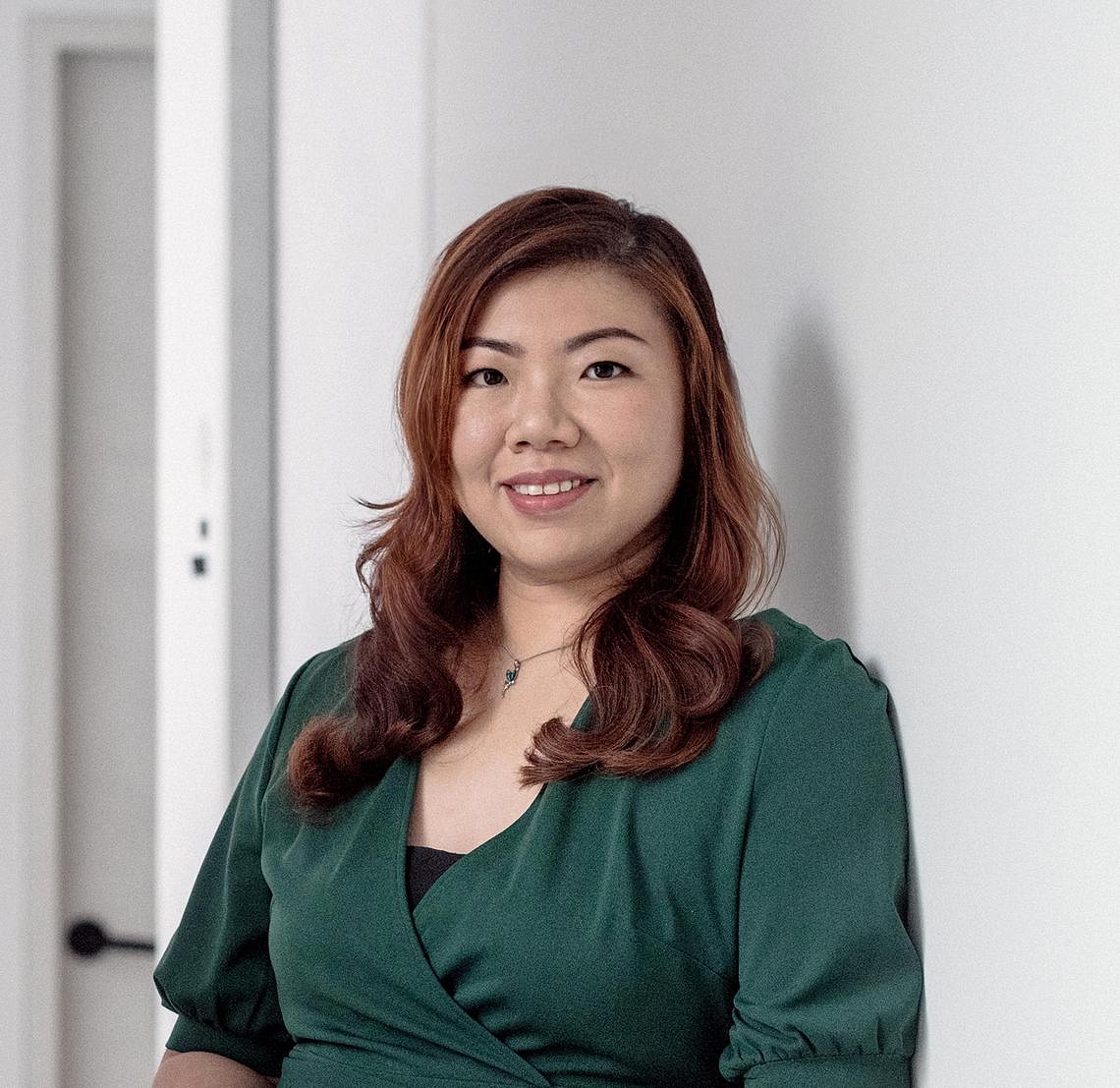
“I’ve always hesitated to share this part of my life, fearing judgment or misunderstanding.
My experience differed from Ms Crystal Lim-Lange’s in many ways. I topped my primary school in the PSLE and formed deep friendships, but beneath that success, the seeds of insecurity were already taking root. There were moments I was judged for being the teachers’ pet or asking out-of-the-box questions.
Entering the GEP was like stepping into a whole new world. Picture a classroom full of brilliant overachievers, each exceptional in their own way. I felt small and self-conscious, constantly playing catch-up with classmates who seemed to excel effortlessly in everything from academics to music to sports.
It was overwhelming and I began to disengage academically, just scraping by in exams, although I later scored well in both the O- and A-level exams.
The programme taught me how to think deeply, be independent and gave me confidence in later years when I had to live and work overseas.
But I could have navigated my GEP years more successfully, both personally and in building stronger bonds with my peers, if I had had someone to validate my feelings then and teach me more about emotional regulation.
It took years of self-reflection and professional help to realise that true giftedness isn’t just about IQ scores or academic achievements. It is about emotional intelligence, resilience, and the ability to navigate life’s challenges with grace.
As I look at my own children now, I strive to provide the emotional tools and support I lacked. My goal is to foster an environment where success is measured not just by grades, but by one’s ability to build meaningful relationships, pick oneself up after failure, and celebrate others’ successes without diminishing one’s own worth.”
Who: Dr Karen Soh, 51, is medical director of Aura Clinic, an aesthetics practice. She entered the GEP in Secondary 1 at Raffles Girls’ School as it had not been launched when she was in Primary 3. Three of her four children, now aged 11 to 23, were in the GEP.
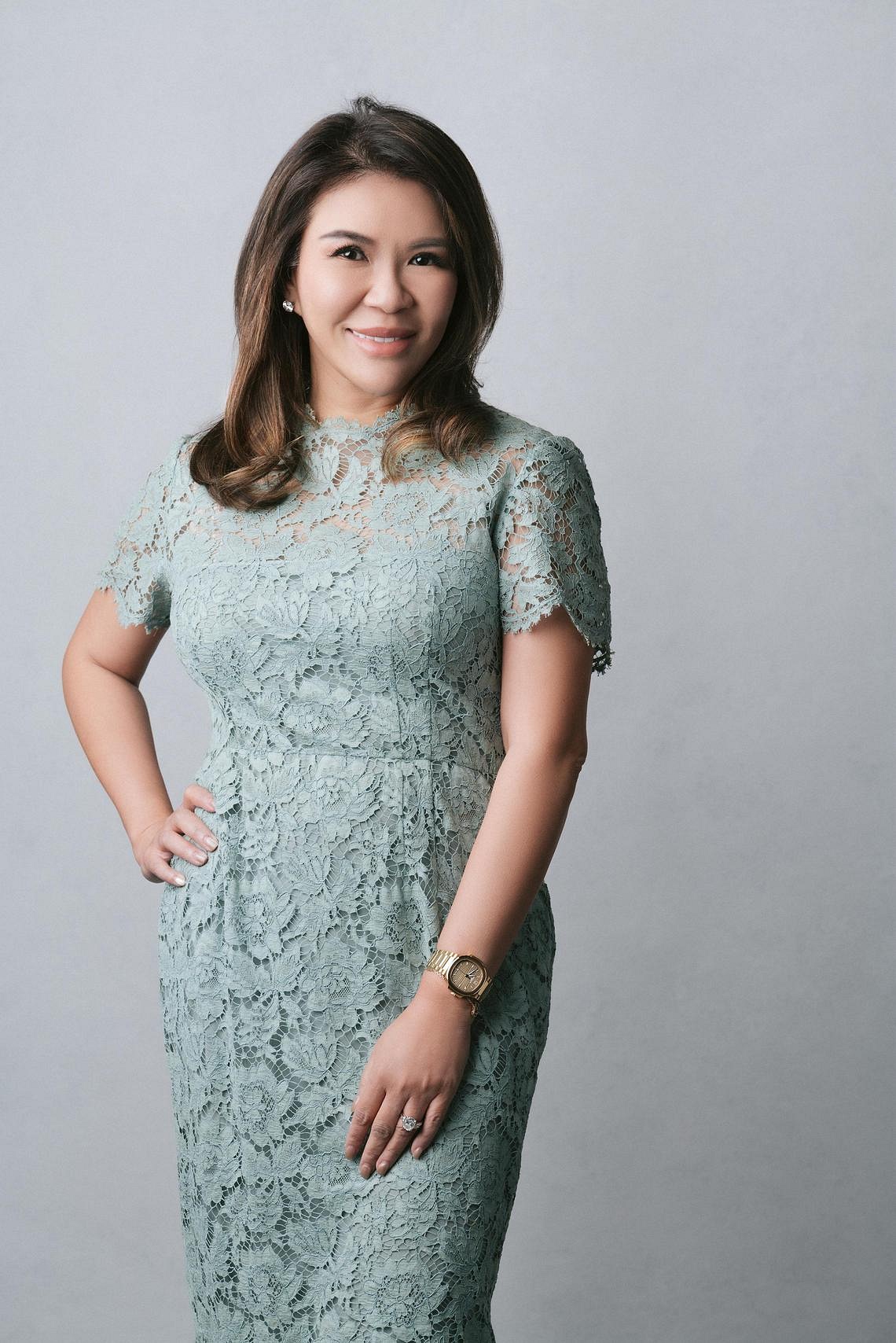
“I loved my time in the GEP. It was like being thrown into a class of similar and yet different kindred spirits. Some of my best friends for life were made during my time there.
Academically, we had the most fun I remembered in school. There was little rote learning, almost no ‘model answers’ to memorise, and unusual answers and alternative views were considered and entertained.
One of the lessons I remember till today was learning and spoofing Shakespeare’s Macbeth in literature class and doing character studies of the characters in the movie, Top Gun (1986). In class, we had our little cliques and squabbles, but nothing out of the norm.
My kids had similar experiences to mine. They had their challenges, but think of their time there positively.”
Already a subscriber? Log in
Final call! Get unlimited access to ST for $0.99/month
Seize the deal before it's gone
ST One Digital - Monthly
$9.90/month $0.99/month
No contract
$0.99/month for the first 6 months, $9.90/month thereafter. T&Cs apply.
Subscriber-exclusive benefits:
Access all subscriber-only content on ST app and straitstimes.com
Easy access any time via ST app on one mobile device
myST: Follow up to 30 authors and 30 topics
Join ST's Telegram channel and get the latest breaking news delivered to you.

Comments
Post a Comment